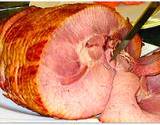|
Grandma's Carnitine Guide
Vegetarians are more likely than non-vegetarians to be deficient in carnitine because it is not found in vegetable protein. Because of their generally greater muscle mass, men need more carnitine than women do. Carnitine is not an amino acid in the strictest sense (it is actually a substance related to the B vitamins). However because it has a chemical structure similar to that of amino acids, it is usually considered together with them. Unlike true amino acid, it is not used for protein synthesis or as a neurotransmitter within the cells to provide energy. This is a major source of energy for the muscles. It thus increases the use of fat as an energy source. This prevents fatty buildup, especially in the heart, liver, and skeletal muscles. It also reduces the health risk posed by poor fat metabolism associated with diabetes; inhibits alcohol-induced fatty liver; and lessens the risk of heart disorders. Studies have shown that damage to the heart from cardiac surgery can be reduced by treatment with carnitine. It has the ability to lower blood triglyceride levels, aid in weight loss, and improve muscle strength in people with neuron-muscular disorders. Conversely, it is believed that carnitine deficiency may be a contributor to certain types of muscular dystrophy; and it has been shown that these disorders lead to losses of carnitine in the urine. People with such conditions need greater than normal amounts of it. Carnitine also enhances the effectiveness of the antioxidant Vitamins E and Vitamin C. It can be manufactured by the body if sufficient amounts of iron , Vitamin B1, Vitamin B6, and the amino acid lysine and methionine are available. The synthesis of carnitine also depends on the presence of adequate levels of vitamin C. Inadequate intake of any of these nutrients can result in a carnitine deficiency. Carnitine can also be obtained from food, primarily meats and other food of animal origin. Many cases of carnitine deficiency have been identified as partly genetic in origin, resulting from an inherited defect in carnitine synthesis. Possible symptoms of deficiency include confusion, heart pain, muscle weakness, and obesity. Because of their generally greater muscle mass, men need more of this than women do. Vegetarians are more likely than non-vegetarians to be deficient in carnitine because it is not found in vegetable protein. Moreover, neither methionine nor lysine, two of the key constituents from which the body makes carnitine, are obtainable from vegetable sources to sufficient amounts. To ensure adequate production of carnitine, vegetarians should take supplements or should eat grains, such as cornmeal, that have been fortified with Lysine. Supplemental carnitine is available in different forms, including D-carnitine, L-carnitine, DL-carnitine, and acetyl-L-carnitine. L-carnitine is the preferred form.
Citrulline Promotes Energy
|
DISCLAIMER:
The statements made here have not been approved by the Food and Drug Administration. These statements are not intended to diagnose, treat or cure or prevent any disease. This notice is required by the Federal Food, Drug and Cosmetic Act.
Return from Carnitine & Citrulline to Amino Acids
Return to Grandma's Herbal Remedies Guide Home








